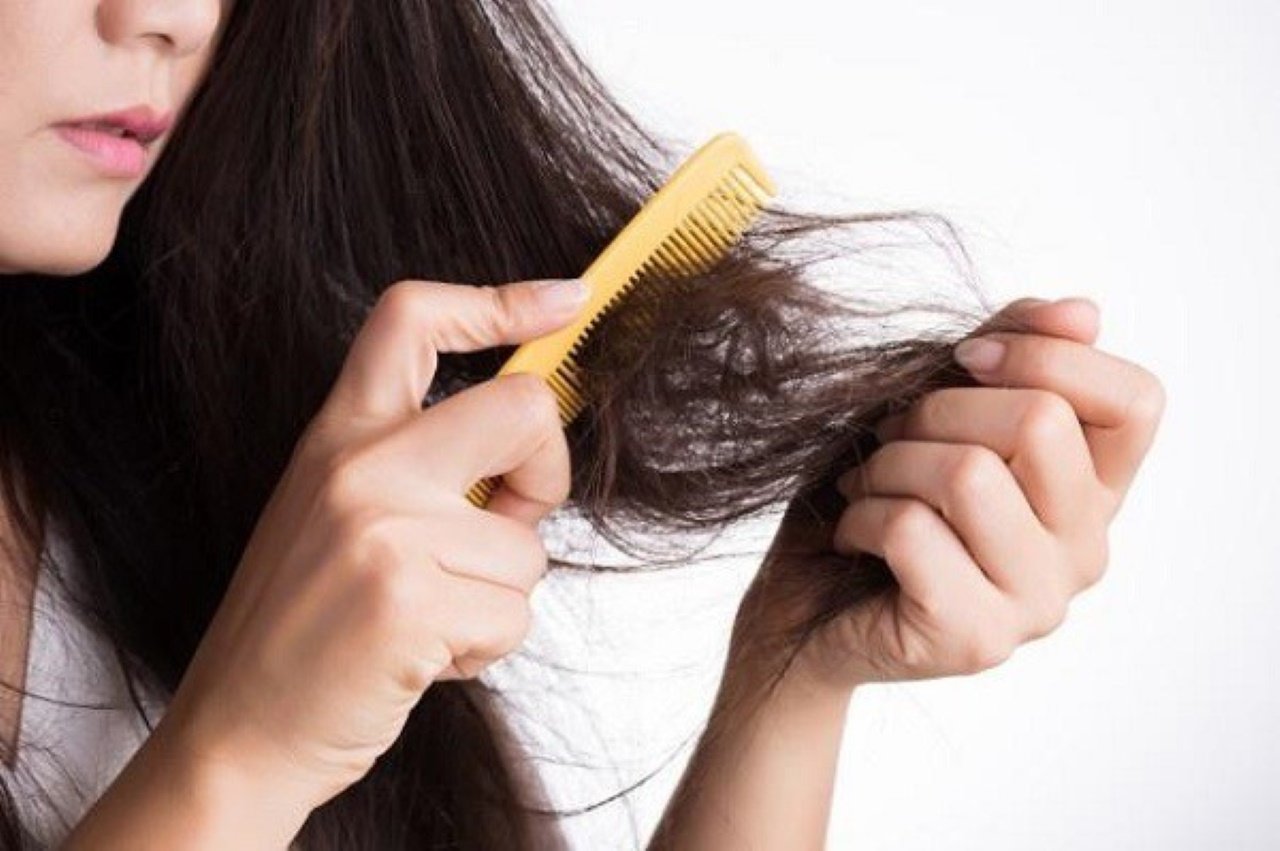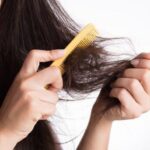1. Why Do We Shed More Hair in Autumn?
According to Health, just like the falling leaves, we tend to shed more hair during autumn. In fact, it’s not unusual to lose up to 100 strands of hair daily during this season, which is twice to four times more than the average daily hair loss (typically ranging from 25 to 60 strands). However, this is only a temporary phenomenon and usually subsides, but it can be a concern for individuals with thin or sparse hair.
The reason for increased hair shedding in autumn is attributed to the stimulating effects of summer sunlight on hormone production, resulting in accelerated hair growth during the previous season. In other words, hair enters a phase of slower growth in autumn, leading to increased hair shedding in the telogen phase (the end of the hair life cycle).

Autumn: A Season of Hair Shedding (Illustrative Image)
The drier autumn air contributes to a drier scalp, and the reduced sebum production can lead to a buildup of dead skin cells on the scalp. These dead cells can clog hair follicles and impede the activity of hair follicles, further exacerbating hair loss.
Significant temperature variations between day and night can also impact the resilience of hair, making it more prone to weakness and dryness. This factor may play a role in the increased hair shedding experienced during this season.
It’s important to note that increased hair shedding in autumn is typically not indicative of a medical condition. However, if hair loss persists for more than three months and you’re losing more than 100 to 150 strands daily, it’s advisable to consult a dermatologist.
2. Remedies to Address Hair Loss
Maintain a Clean Scalp and Practice Proper Hair Washing: Avoid extremely cold or hot water for washing your hair, as hot water can overstimulate the scalp and hair. The ideal water temperature for hair washing is 37 degrees Celsius, similar to body temperature. If you have oily hair, refrain from using excessive conditioner, and if you have dry hair, use conditioner to prevent tangles. Apply conditioner only to the ends of your hair and then rinse thoroughly.
Air-dry Hair Naturally After Washing: If you need to use a hairdryer, set it to the cold air setting and maintain a distance of at least 15 cm from your hair. If you wash your hair in the evening, ensure your hair is completely dry before going to bed. Sleeping with wet hair can lead to scalp irritation, damage to the hair cuticle, and potential fungal growth on the scalp.
Gentle Brushing with a Wooden Brush: Brushing your hair gently with a wooden brush can help prevent hair loss by improving blood circulation and adding shine and elasticity to your hair. However, overbrushing can create static electricity, attracting dust to your hair and scalp, and stimulating the production of dead skin cells on the scalp.
Avoid Overstyling Your Hair: Daily use of styling products like wax, mousse, sprays, and gels can expose your scalp to chemicals. Therefore, it’s advisable to minimize the use of such products.
Scalp Massage for Hair Retention: Massaging your scalp stimulates blood flow and enhances the metabolic activity of cells beneath the scalp, ensuring a consistent supply of nutrients from root to tip.
5 Hair Care Habits That Seem Helpful But Actually Cause More Harm Than Good
Taking care of your hair is about more than just aesthetics; it’s about maintaining scalp health. Are you guilty of common mistakes such as over-shampooing or brushing too vigorously? Discover the five harmful misconceptions that could be causing your hair to shed more than usual, and learn how to effectively remedy the situation.



































